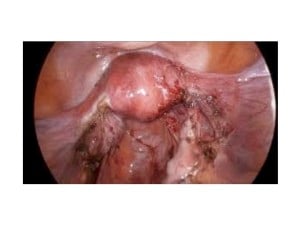We are experiencing a very high volume of calls and messages and ask for your patience. We will answer your portal messages within 48 hours.
We are experiencing a very high volume of calls and messages and ask for your patience. We will answer your portal messages within 48 hours.

 Since many patients who have endometriosis are also infertile, they are not sure about what they should do. When considering treatment for endometriosis and IVF, which should come first? In most instances, the advice patients receive can be very conflicting.
Since many patients who have endometriosis are also infertile, they are not sure about what they should do. When considering treatment for endometriosis and IVF, which should come first? In most instances, the advice patients receive can be very conflicting.
Some say that even if you need IVF, the endometriosis will have to be surgically removed. Apparently the rationale behind this is that the cysts it will interfere with the IVF treatment cycle and reduce IVF pregnancy rates. Though this seems to make sense, it’s actually quite illogical. If you have endometriosis and need IVF, there is no need to do anything about the endometriosis per se, because the endometriosis is outside the uterine cavity and is not going to affect the embryos that implant in the uterine cavity.
 Actually, unnecessary laparoscopic surgery can reduce your chances of successful IVF. Removing the chocolate cyst causes damage to the normal adjacent ovarian tissue, in turn reducing the ovarian reserve even further. Women with endometriosis already have reduced ovarian reserve and surgery only further reduces it, making them unable to grow good, quality eggs after they go in for IVF treatments.
Actually, unnecessary laparoscopic surgery can reduce your chances of successful IVF. Removing the chocolate cyst causes damage to the normal adjacent ovarian tissue, in turn reducing the ovarian reserve even further. Women with endometriosis already have reduced ovarian reserve and surgery only further reduces it, making them unable to grow good, quality eggs after they go in for IVF treatments.
A recent Human Reproduction paper, published March 2015, "Surgical diminished ovarian reserve after endometrioma cystecomy versus idiopathic DOR: comparison of IVF outcome"- Audrey Roustan, et al, proves that the chances of IVF success are decreased in women with diminished ovarian reserve after cystectomy for endometrioma. This is especially true for women with bilateral endometriomas.
Why is there such a difference of opinion? The reason stems from the over-specialization in the field of medicine. Every specialist focuses on nothing but his or her own specialty. A gynecologist who specializes in laparoscopic surgery will tell the patient that the endometriosis will have to be treated before she even considers getting infertility treatment. Because gynecologists don't have any training or experience in IVF, they don't realize the inadvertent harm they end up causing their patients by doing this surgery.
The physician can find this particular surgery very gratifying as the before and after laparoscopy images are quite impressive; this is because the removes the adhesions and clears the pelvis. While the pelvis may look much prettier after the surgery, this is not very useful because it does not help to improve the patient’s fertility.
Receiving conflicting advice can cause confusion but there is a very simple solution: The right patient has to be selected for the right treatment.
Ideally, a multidisciplinary team of doctors should treat endometriosis patients where both gynecologists and IVF specialists can provide their viewpoint, and the patient can weigh both perspectives and then make up her mind. The surgery may offer them a window of opportunity and if they understand the pros and cons, then it's an option worth exploring.
If the patient needs IVF, then she should could just go ahead, and not waste her time doing laparoscopic surgery before the IVF cycle.
The beauty is that once you do get pregnant with IVF, you will get significant relief from your pelvic pain, and your endometriosis will usually regress while you’re pregnant, and while you're breast-feeding as well.
To work with a qualified, board-certified fertility specialist, make an appointment at one of InVia's four Chicago area fertility clinics.

Entire Website © 2003 - 2020
Karande and Associates d/b/a InVia
Fertility Specialists
